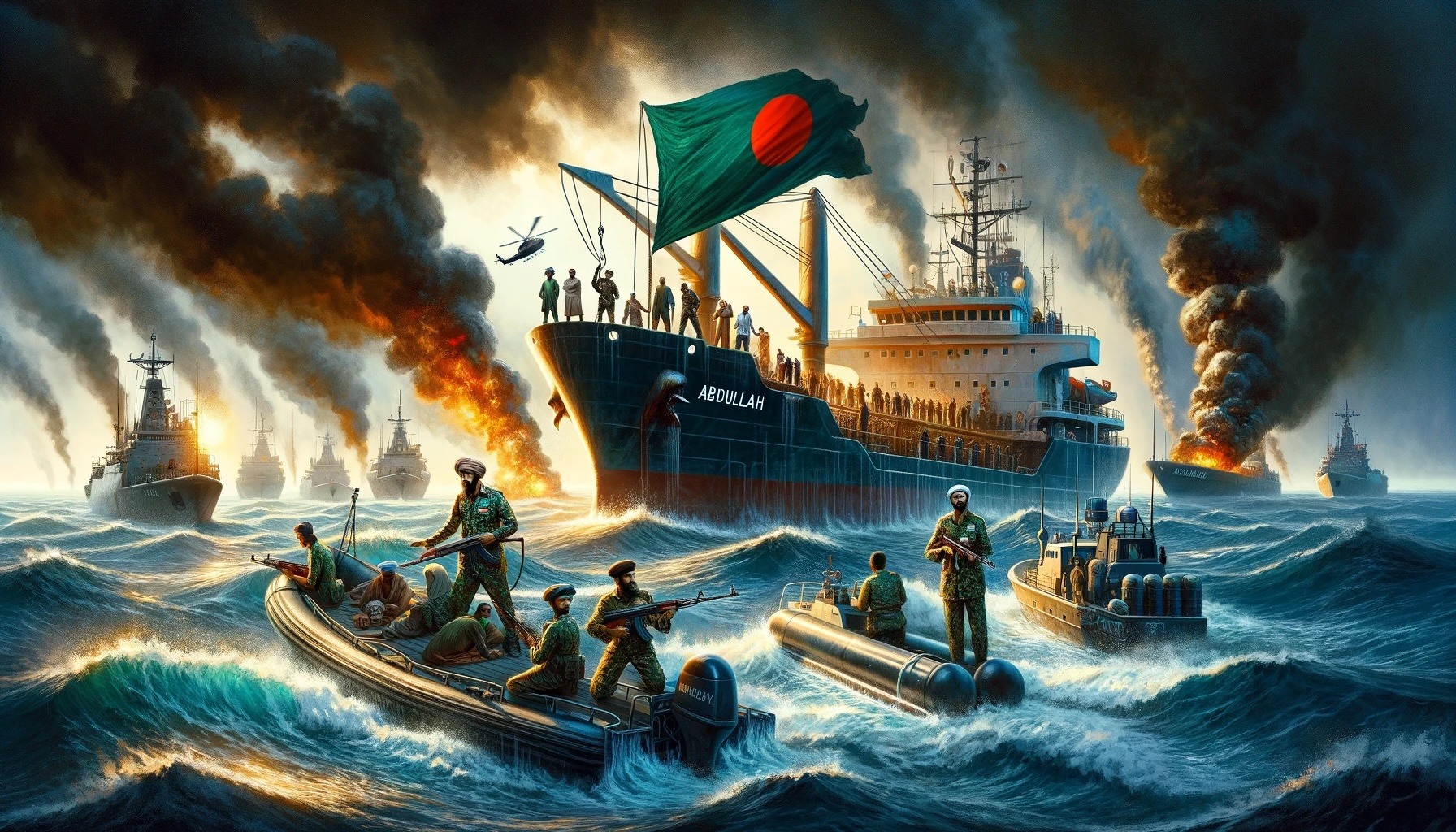The resurgence of piracy in the western Indian Ocean, triggered by Houthi attacks on international shipping in late 2023, has created opportunities for Somali pirates, resulting in 18 hijackings since November.
Among these was the MV Abdullah, a Bangladesh-flagged vessel seized in March. The peaceful resolution of this crisis underscores the stakes smaller countries have in Indian Ocean security.
Bangladesh, whose economy heavily relies on maritime trade, has seen its naval capabilities grow significantly. The nation's economic development, driven by its readymade garments industry, is linked to secure sea routes. With 90% of its trade dependent on maritime routes, any disruptions pose serious threats to its growth.
In response to these maritime challenges, Bangladesh has expanded its naval capabilities through a modernization program initiated in 2009 by Prime Minister Sheikh Hasina. The Bangladesh Navy has acquired submarines, built new naval bases, and transitioned from a "buyer's navy" to a "builder's navy." This transformation has enabled the Navy to conduct regional and international operations, including disaster relief in Sri Lanka, the Philippines, and the Maldives.
Bangladesh also plays a significant role in international maritime institutions. It resolved maritime disputes with Myanmar and India through the UN Convention on the Law of the Sea and led the Indian Ocean Naval Symposium (IONS). Bangladesh’s commitment to sustainable practices was highlighted by its ratification of the Hong Kong International Convention for ship recycling, setting a global standard.
Furthermore, Bangladesh has shown leadership within the International Maritime Organization (IMO), achieving positions of influence and contributing to global maritime standards. Its election to the IMO council signifies its growing role in maritime governance.
Bangladesh's evolving relationship with the United States is also crucial. Dhaka’s Indo-Pacific Outlook identifies its strategic objectives amidst regional security challenges. Bangladesh should consider joining the U.S.-led Combined Maritime Forces (CMF) and signing defense agreements like the Acquisition and Cross-Servicing Agreement (ACSA) and the General Security of Military Information Agreement (GSOMIA). These steps would enhance its maritime security capabilities and strengthen ties with the U.S.
Despite its maritime successes, Bangladesh faces economic challenges, including debt burdens and maintaining foreign reserves. The country must navigate these issues while avoiding entanglement in major-power rivalries, aiming to sustain its growing role as a maritime security provider in the Indian Ocean.





